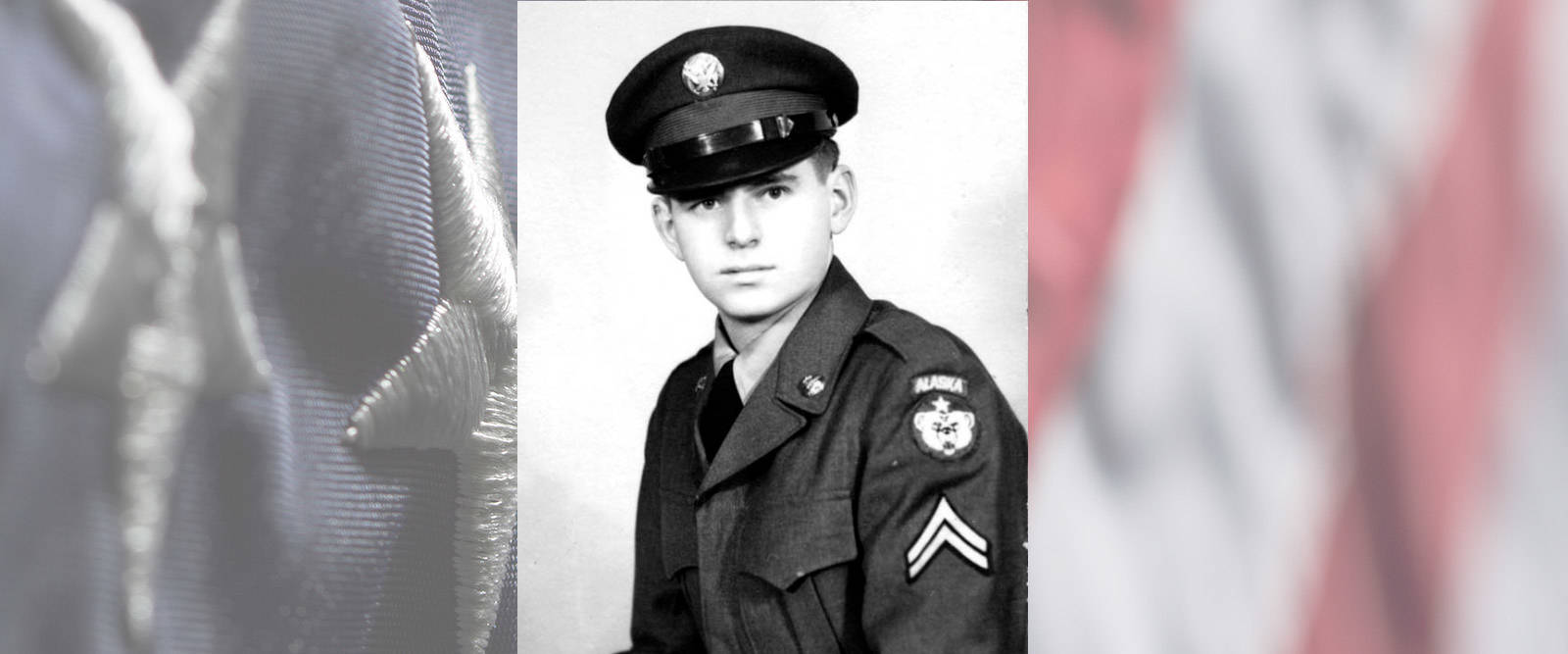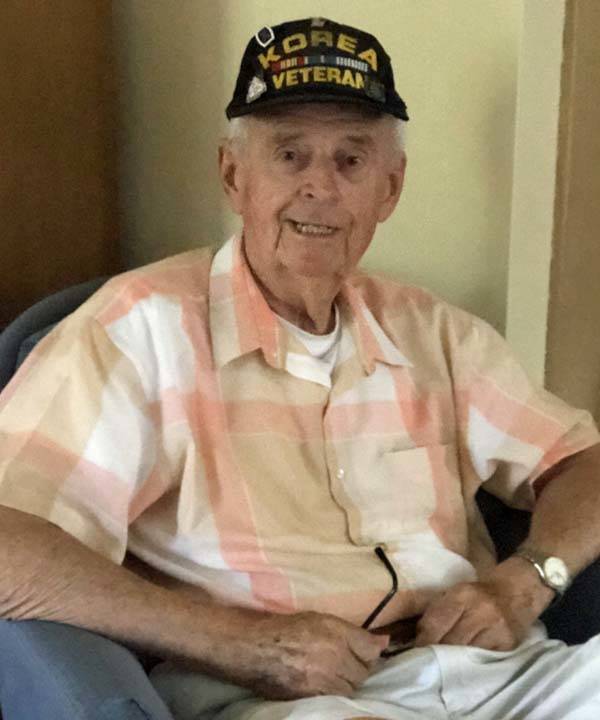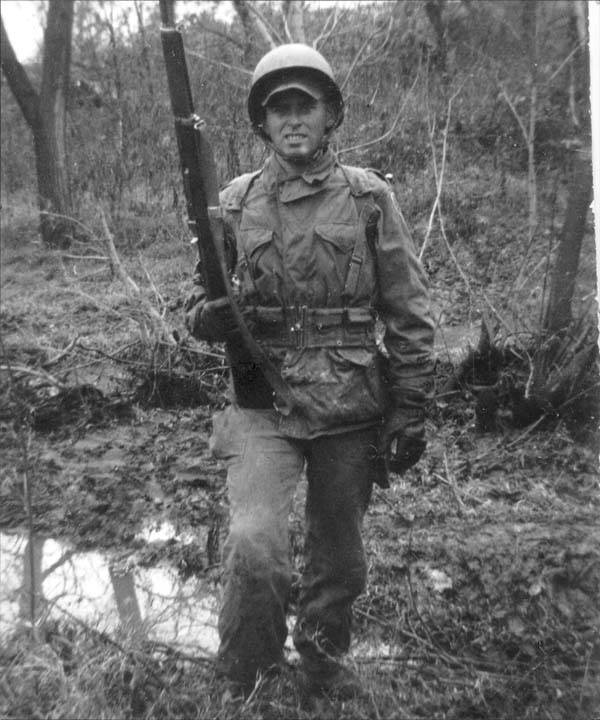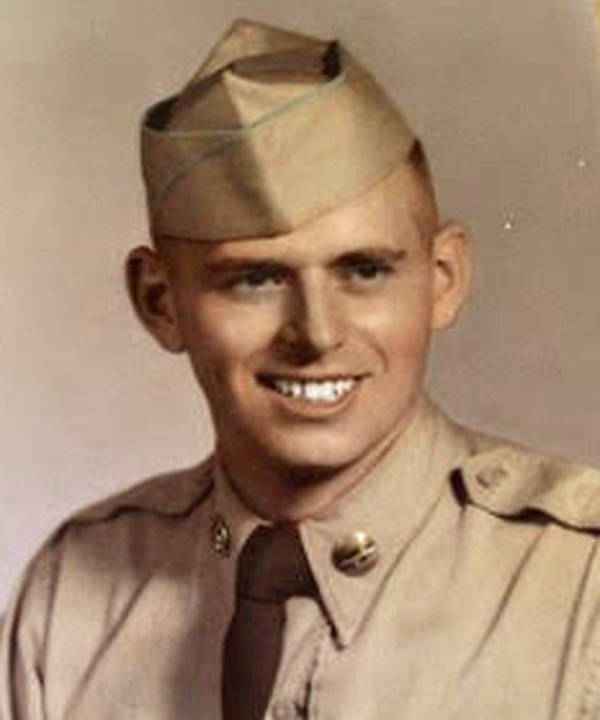U.S. Army Korean War Niles, IL Flight date: 09/12/18
By David Adams, Honor Flight Chicago Veteran Interviews Volunteer
Milan M. Menich lived the first eight plus years of his life in Czechoslovakia during the 1930’s. Born on November 6, 1929 in Chicago, just after the October stock market collapse and at the beginning of Great Depression, he was sent with his mother and older brother back to Czechoslovakia. The three settled back in the extended family’s home town of Veľký Čepčín. Meanwhile, his father tried to make ends meet in Wisconsin. His parents’ plan was to bring the family back together once his father was able to provide support.
The three lived in Veľký Čepčín until 1938 when the rise of the Nazi party and German military threats in Europe encouraged many to flee to America or other free countries. His father had finally managed to collect the funds necessary to show the American government that he could support them when they returned. So Milan, along with his mother and brother traveled overland to a port in France for the ocean voyage to Ellis Island. The trip required stopovers in Münich and Paris. In Münich he remembers leaving a restaurant and just before crossing the street outside, they had to stop to let Nazi troops march by. “They wore black uniforms and were the Gestapo”– a vivid memory for any eight-year-old.
They arrived in New York at Ellis Island speaking only the Slovak language. Milan and his brother, both American citizens, were granted entry as a matter of course. Their mother was a different story, since she was not a citizen; but after much negotiating and explaining, she was finally granted entry. The family together again, settled in Chicago. Milan graduated from Crane Tech in 1947 and entered the sheet metal trade. He recalls getting his “greetings” letter from the draft board in the summer of 1951 during the height of the Korean War.
Milan was inducted on July 23, 1951. After processing at Ft. Sheridan, he completed 16 weeks of Basic Infantry Training at Ft. Riley, KS. He was assigned immediately to Korea and with an entire cadre of new recruits he waited in Seattle for a troopship. Surprisingly, he recalls that “the day before shipping out, my orders were changed to Alaska.” So, on January 4, 1952 one half of his unit boarded the USS O’Hare, which stopped first at Kodiak Island and then Anchorage.
From Anchorage, he traveled by train to Fairbanks, where he joined the 59th Engineer Company. Getting off the train and encountering a temperature of -32°, he realized he and his unit did not have the proper gear for their new assignment. “We were not dressed right!” Parkas and insulated boots would soon become the uniform of the day. The 59th was tasked with building anti-aircraft artillery (AAA) gun positions for protection of the two airfields in and near Fairbanks. They also protected the 500 miles of highway between Fairbanks and Anchorage. Milan was stationed at Ladd Air Force Base although he also served at Eielson Air Force Base, 26 miles south of Fairbanks. The Ladd base had several fighter squadrons and Eielson had B-36 strategic bombers. He remembers that when a B-36 returned from a mission, everyone went on alert.
Milan spent months as “a lumberjack” in the forests 25 miles from Ladd, harvesting trees for use in gun emplacements and other construction at Ladd. Trees were felled and stacked on the river bank for eventual floating downstream to the 59th Engineer Company sawmill. When the river thawed in spring, the trees were pushed into the Chena River for a final trip. Life as a lumberjack had its moments, according to Milan. One of his buddies from the south was an excellent hunter. The “lumberjack detachment” always had game to eat. Milan remembers once two geese flew overhead and landed on a nearby river. His buddy said, “get your rifle and come with me.” The two tracked the geese and laid down in the snow. Milan asked after a long time lying in the cold, “why don’t we shoot?” “Wait,” his buddy said as he bided his time until the geese were lined up perfectly. He planned to take them out in one shot – which he did! Milan had a dog, named Red, half husky and half shepherd, but Red’s retrieval skills were not needed that day because the geese had landed on a frozen river.
Logging was also dangerous. Once a tree fell on Milan knocking him unconscious and causing serious injuries. After many days at Eielson AFB recuperating, he returned to duty. He admits he suffers from the after-effects of this experience to this day.
Once a month the company had alerts when each AAA position was manned. Milan, as did each soldier, would man the gun “on top” for 15 minutes at a time. He became skilled in firing these weapons, especially the .50 caliber machine gun. He remembers that beside the training alerts, an actual alert occurred when surveillance radar picked up thousands of targets crossing the Bering Strait. The guns were manned until it was confirmed that the radar had picked up migrating seals! Following eighteen months in Alaska, Milan was released from active duty as a corporal from Ft. Carson, CO on July 8, 1953. He spent the next six years in the Enlisted Reserve Corps (now US Army Reserve) until October 1959, when he received an Honorable Discharge.
Back in Chicago, Milan returned to the sheet metal trade working for the Robert Irsay Company of Skokie. He installed mechanical HVAC systems in major construction projects throughout the Chicago region. He is especially proud at never having been laid off, even during the worst business downturns. He retired in 2009.
Milan met his future wife Vera outside her father’s butcher shop one afternoon when he had accompanied his mother on a shopping trip to the market. Vera agreed to go out with him to the Melody Ballroom. Milan states that if a girl could not dance, one date was all she got with him. Vera says they danced like Fred Astaire and Ginger Rogers; Milan and Vera will celebrate 64 years of marriage on September 18, 2018. They have two children, a son and a daughter, and five grandchildren.
A final memory: Milan and Vera made a visit to Veľký Čepčín, Slovakia in 1999. As a little boy Milan rang the village bell on Sundays for morning services held in the church in a neighboring village. During the ‘99 visit he was asked if he wanted to ring the bell again. “Sure.” After he finished ringing it, immediately an old lady ran out of her house asking, “who died?” Little did Milan know, this was the only reason the bell was to be rung today.
Milan, welcome home and thank you for your faithful service. Enjoy your special day in Washington, D.C. for you have certainly earned it!






